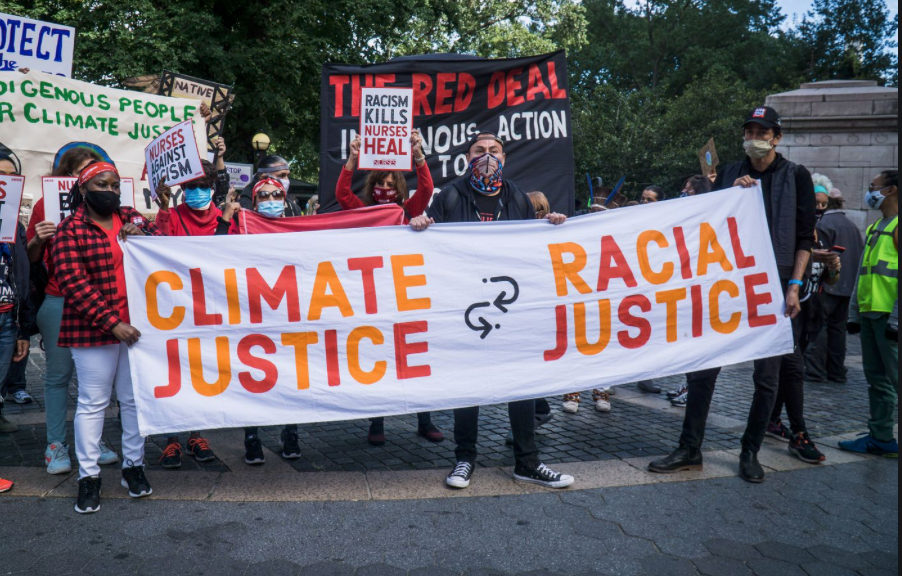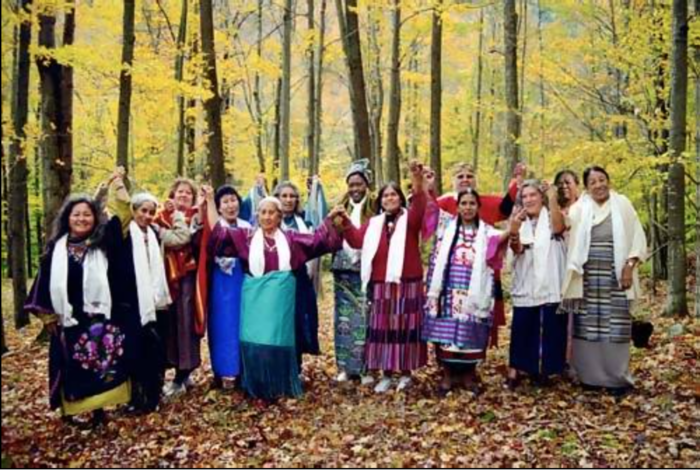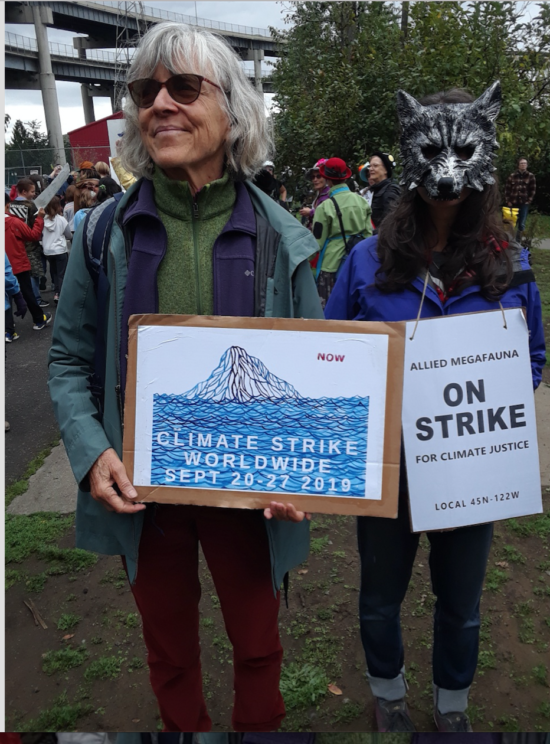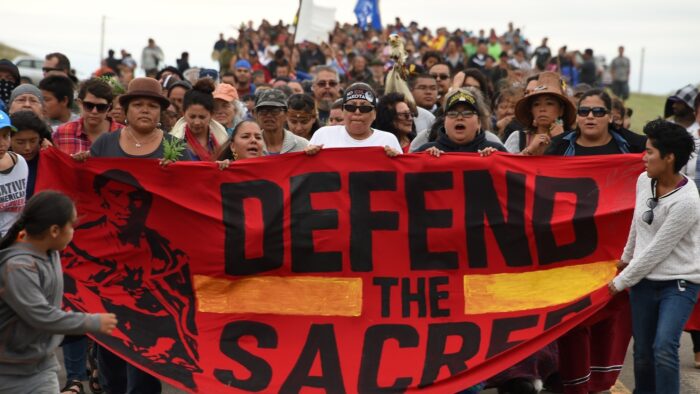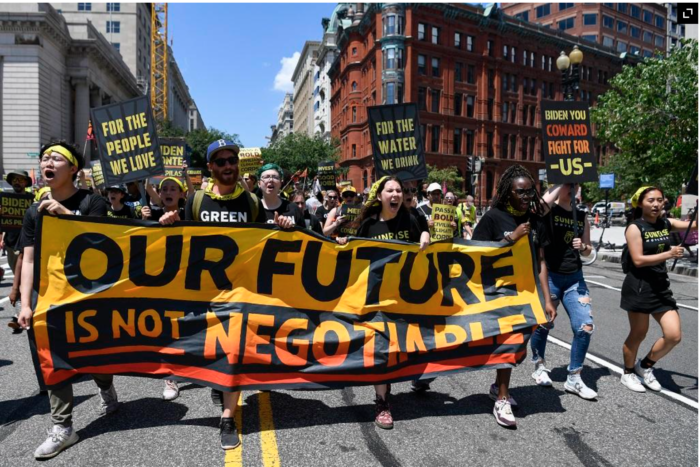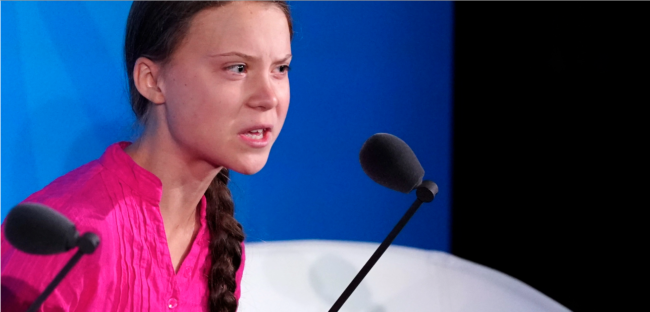I have to make a confession: I have been a bad climate citizen. While I have been moved to the core by this summer’s record smashing heat, wildfires and floods, in response, I have done little more than wring my hands and exchange feelings of despair with friends.
This weekend I read the book, All We Can Save, which hit me like a ton of bricks, awakening me to the urgency for immediate action to curtail climate change. All We Can Save is a compilation of 60 essays by diverse American women climate leaders—scientists, journalists, farmers, lawyers, teachers, activists, poets, and artists, across generations, geographies, and race.
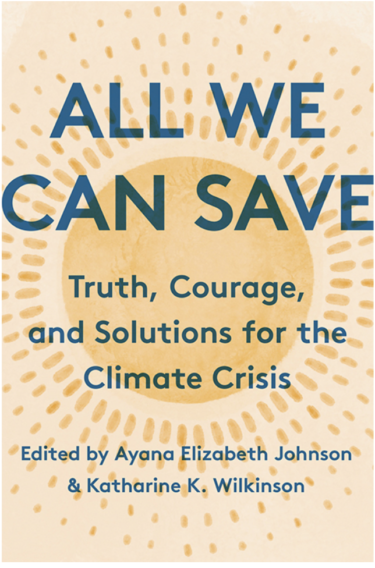 The feminine perspective with an emphasis on climate justice has been sidelined in the climate change conversation.
The feminine perspective with an emphasis on climate justice has been sidelined in the climate change conversation.
Women climate leaders define climate justice as equitable climate policies that address women and children in poor and indigenous communities, marked by toxic waste and contaminated drinking water. An unprecedented number of children in low-income neighborhoods have developed asthma from breathing polluted air.
All We Can Save offers a cautious hope, believing that we can save the planet, but only if we act without delay. The August 9, 2021 report from the IPCC (Intergovernmental Panel on Climate Change) likewise underscores the urgency of acting now if we are to avoid irreversible damage to the planet and human and animal life.
Alice Walker’s poem, “Calling All Grandmothers,” begs the question:
“Isn’t it about time we stopped looking at our grandkids with anguish for the world they will inherit and do something about it?”
Ayana Elizabeth Johnson and Katharine Wilkinson, the editors of All We Can Save, warn,
“The focus on what we can do as individuals, instead of what we can do together, will mean failure.”
So much for my small individual responses like giving up meat and using canvas shopping bags. They don’t go far enough, but I might make a difference, if I join a climate action group focused on making those running the country accountable for our rapidly accelerating climate crisis. The US is the globe’s biggest contributor of fossil fuel emissions.
Another essay from the book encourages us to frame our conversations about climate change in ways that will resonate with the other.
The next time a friend makes a passing reference to a forest fire or flood, I will try to expand the conversation by reflecting that her grandchildren will face a dystopian future, if we don’t reduce our dependency on fossil fuels by keeping temps below 1.5 degrees Celsius. I might share my own awakening and steps I’m taking to get more involved.
I like embracing climate change in a spiritual context as described by Tara Houska-Zhaabowekwe’s essay, All We Can Save, where she describes working for a healthy globe as “sacred resistance.” This perspective reminds me of my connection to nature, and the communion I experience with trees when I take country walks.
I will lobby my lame elected reps to support the Green New Deal, which calls on the federal government to wean the United States from fossil fuels and curb planet-warming greenhouse gas emissions across the economy. It also aims to guarantee new high-paying jobs in clean energy industries. It will be a tough bill to enact given the outsized influence of the fossil fuel conglomerates. I won’t overlook the importance of working for green legislation on the local and state levels.
I plan to join a local climate action group like Greenpeace USA or 350.org and contact the youth-led climate group, Sunrise, to offer my support and a donation. We desperately need our movement to be inter-generational.
Our youth are understandably anxious over the globe’s uncertain future, causing large numbers to experience anxiety and depression, referred to as “ecoanxiety.”
I will never forget Greta Thunberg’s UN speech, when, visibly angry, she gazed intensely at the adults in the room, accusing them of indifference to how climate change threatens her generation, protesting, “How dare you?” Indeed, “How dare we?”
